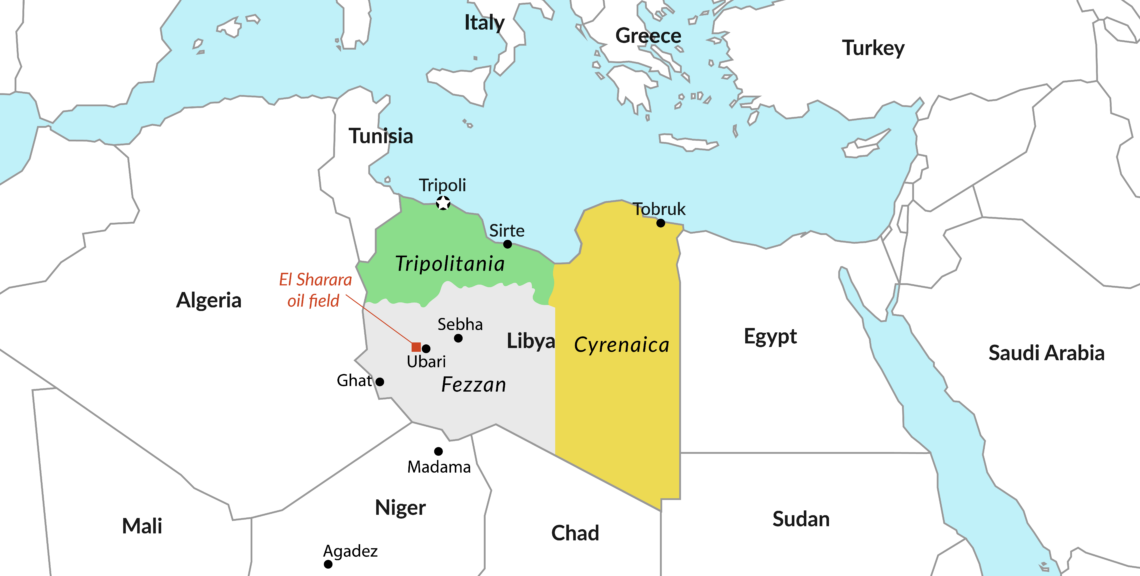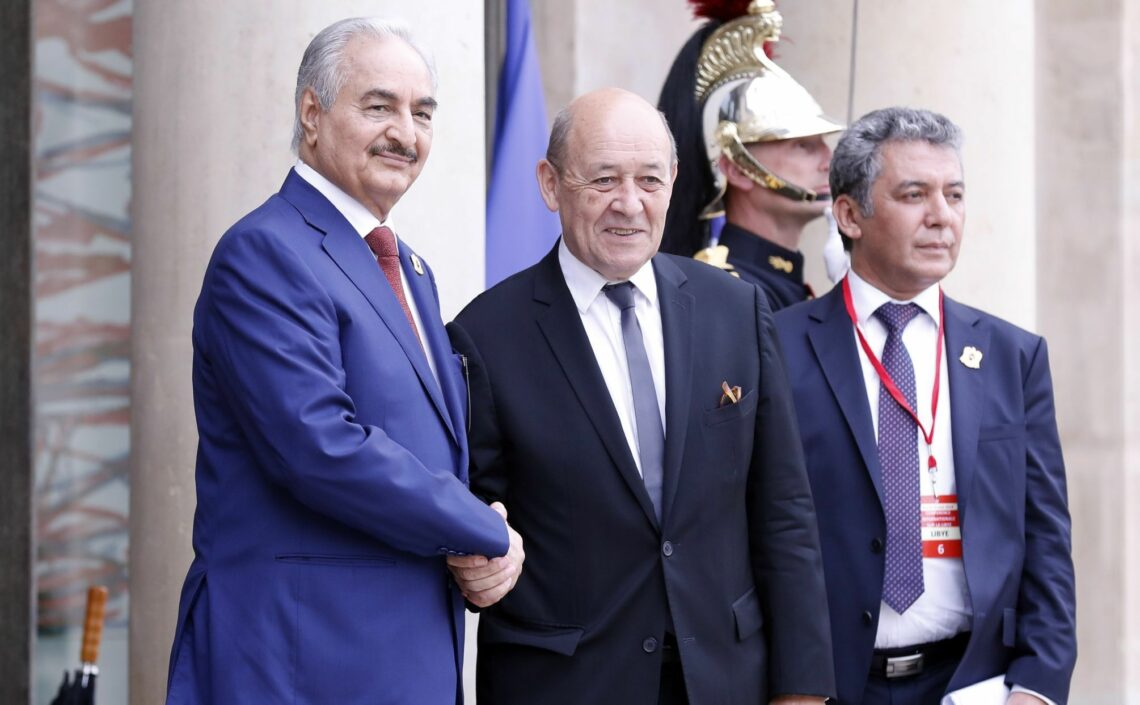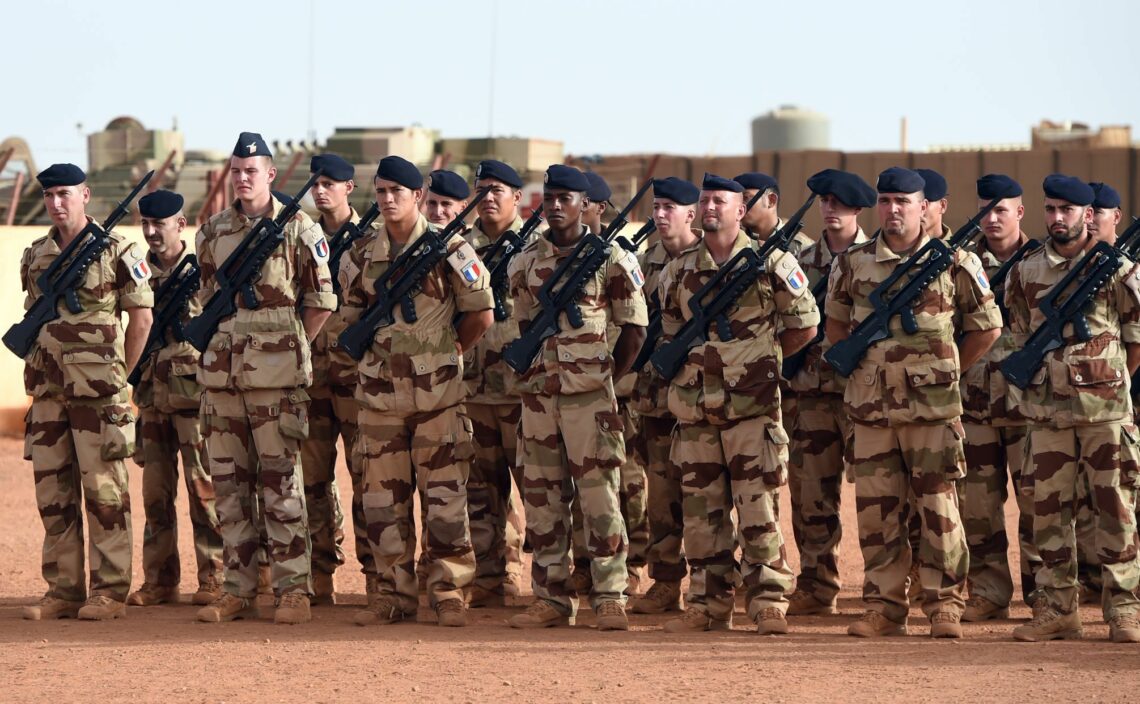Libya and the Franco-Italian rivalry
In North Africa, France and Italy share vital national interests in migration, terrorism, and energy. Yet profound differences in tackling these issues have put them in direct competition and even led to a diplomatic crisis earlier this year. Nowhere is the rivalry more visible than in Libya, where it delays a resolution to that country’s civil war.

In a nutshell
- Paris and Rome have long tussled over North Africa
- They share a desire to curb migration, fight terrorism and secure the oil industry
- Today, Franco-Italian competition is especially evident in Libya
- The strained relations are an obstacle to their cooperation on these issues
France and Italy are at loggerheads over several geopolitical developments in North Africa, none more important than the struggle for influence in Libya. Paris and Rome have very different ideas about how the political process in the country should move forward. High-profile politicians have slung recriminations, and the two countries have held competing summits to discuss Libya’s future.
The dynamics are complex, for reasons involving international clout, economics and oil. But to really understand the rivalry in North Africa, we need to take a step back and look at the region’s history, starting with European colonialism.
Contrasting systems
The French and Italian colonial orders were profoundly different, as was the geography of the lands and the composition of the communities they colonized. At the time, there was no sense of Africa as a region or of a shared identity among the people there. The European powers grouped people together within artificial borders that took no account of their ethnic or cultural identities.
The French managed their colonies as part of a wider French Union. That structure’s footprint outlasted World War II into the postcolonial era. The Algerian War (1954-1962) then radically changed Franco-African relations: Charles de Gaulle spearheaded the creation of the Fifth Republic and its constitution, which allowed colonial territories to begin asserting their independence (provided that French economic and defense interests were protected). Twelve African territories started down the path of independence, but France has maintained its strong influence over these former colonies.
When the Italians abruptly left their colonies, the people were not ready to take the reins of their own future.
Italy’s experience was very different, in part because it began colonizing Africa later than other European states. It began by setting up an economic protectorate in what is now Eritrea and Somalia. Between 1911 and 1941, the Italian military conducted operations in Libya and Ethiopia. An Italian empire in Africa was formally established in 1936, but the Africans who lived there were always considered second-class citizens. The Italians built whatever infrastructure they needed to maintain their empire, but they did not invest in the people. They also preferred direct governance over developing a cadre of local leaders. When the Italians abruptly left their colonies, the people of Libya and the Horn of Africa were not ready to take the reins of their own future. After a very early decolonization period in the 1940s, some economic links remained, but nothing like the structured relationship France established with its colonies.
Competition and shared interests
Each country wanted its own piece of the Maghreb. In 1881, with a sudden invasion, France took over Tunisia, which Italy had also been eyeing. The event became known as the “slap of Tunis” and was a very bitter pill for the Italians to swallow. After the Italo-Turkish war of 1911-1912, Italy seized Libya from the Ottoman Empire. France and Italy signed several agreements at the beginning of the 20th century divvying up the region among themselves. At this point, their competition was largely geostrategic: oil played much less of a role than it does now.
Today competition persists, but it is much more complex. The most profound disagreements concern how political change should come to Libya. This dispute has gone public in recent months, raising concerns that bilateral tensions could derail initiatives on more important issues. The French and Italians have three common areas of vital interest in North Africa: energy resources, migration and terrorism. The disparate ways they deal with these issues help shape the geopolitical dynamics both in Africa and Europe.
Energy resources: In North Africa, the main focus for both Italy and France is Libya. Here, the rivalry is clear. Energy giants from each country, Italy’s ENI and France’s Total, are vying for control. ENI has a strong presence in Tripolitania, in Libya’s northwest, while Total holds significant sway in the eastern region of Cyrenaica.

Officially, both France and Italy back the United Nations Support Mission in Libya (UNSMIL) and the Tripoli-based Government of National Accord (GNA), which currently holds sway over Tripolitania. On the ground, however, France has applied a much more pragmatic policy, not hesitating to support Field Marshal Khalifa Haftar and the Tobruk-based House of Representatives, who rule Cyrenaica. Both governments claim sovereignty over the entire country.
In recent weeks Fezzan, Libya’s southwestern region, has been in the headlines because of the advance of Mr. Haftar and his Libyan National Army. This vast stretch of desert contains one of the country’s biggest oilfields, El Sharara, which is of huge strategic value.
In a rentier state like Libya, whoever controls the oil controls the country. France is betting on Mr. Haftar and is pushing to consolidate his power to help curb terrorism in the country. Italy, with its interest in stemming the flow of migrants and securing Libya’s energy resources, has thrown its full support behind the UNSMIL-backed GNA government in Tripolitania.
Migration: Migration from Africa is a difficult problem, and yet very little has been done about it. France and Italy have their own migration policies, while the EU is divided over the issue. In any case, the EU cannot tackle migration adequately without cooperation from the African Union.
Human trafficking is widespread throughout many communities in Libya and the Sahel. In 2016, an EU report found that people smuggling brought more than $346 million in income to Libya’s coastal cities. The International Organization for Migration (IOM) estimated that nearly 364,000 refugees tried to cross the Mediterranean Sea that year.
Libya’s domestic instability has made it a particularly attractive safe haven for jihadi terrorists.
Terrorism: Over the past few years, the Sahel has become a breeding ground for terrorism. Due to enormous social and economic problems, it is one of Africa’s most unstable regions. There are many reasons for this state of affairs: weak local governments, tribal conflicts, climate change and porous borders, to name a few. These conditions offer fertile soil for new jihadi and mercenary groups to spring up. Libya’s internal instability and lack of a unified government have made it a particularly attractive safe haven for jihadi terrorists.
Islamic State, also known as ISIS or Daesh, was severely weakened and deprived of its main stronghold of Sirte (with the help of U.S. air strikes and special operators) in 2016. Now, however, local media report that it is infiltrating back into parts of the country. Al-Qaeda is also making a comeback from the south, with Ansar al-Sharia regaining momentum in the west.
France has thousands of soldiers positioned across West Africa, some of them about 60 kilometers from Libya’s southern desert border, as part of its Operation Barkhane counterterrorism force. Paris admitted its war against jihadists had extended into Libya in 2016, when three French soldiers were lost in action during a secret operation there.
Sahel operations
The most unstable part of Libya is Fezzan, since the main central African smuggling routes pass through it. To the south, in Niger, lies the main hub for criminal commerce in the region. The towns of Agadez in Niger and Gao in Mali are at the core of the Sahel smuggling business, because of their convenient location along the transport corridors to southern Libya.

In 2017 Italy joined Operation Barkhane, with Rome approving a mission in Niger. Later, the operation’s area for intervention was enlarged to include Mauritania, Nigeria and Benin. Italy committed about 500 soldiers and 100 vehicles to the Madama military base, built around the remains of a French colonial fort. In 2014, the French forces constructed a forward operating base there with an airstrip 1,800 meters long. The base is located less than 100 kilometers from the Libyan border, in an ideal location for monitoring the trafficking routes across the sandy 600-kilometer frontier.
European dimension
French President Emmanuel Macron’s habit of taking the initiative in Africa without consulting his European partners has been difficult for the new Italian government to stomach. Libya is perhaps the most striking example of this pattern: France has consistently tried to take the lead, making one diplomatic mistake after another, while Italy has been more careful. For instance, Paris pushed hard for elections before the end of 2018 – a plan that disastrously fell through. From the beginning, Rome had expressed its doubts about the idea. Mr. Macron seems to believe that acting is better than doing nothing, revealing a shallow understanding of Libyan social dynamics and the situation on the ground.
These tensions have had an impact in the European political sphere. One example is the tug-of-war over STX France (now Chantiers de l’Atlantique), which the Macron administration wanted to nationalize rather than give Italy’s Fincantieri a majority stake.
The election of the new Italian government, formed by the leftist Five Star Movement (Movimento 5 Stelle) and the nationalist League (Lega), has put more stress on the relationship. Recriminations have accumulated on both sides. Tensions reached their peak in January 2019, when Italian Deputy Prime Minister Luigi Di Maio claimed that the cause for the migrant crisis was that the French had “never stopped colonizing Africa,” in part through the West African franc and Central African franc (both guaranteed by the French treasury).
Not satisfied with the diplomatic damage he had done, in February 2019 Mr. Di Maio met with leaders of the French Yellow Vest protest movement, which has railed against the Macron government. President Macron was furious. The French ambassador to Rome was recalled, marking the worst diplomatic crisis between the two countries since World War II.
France has supported any effort to hold elections in Libya.
The result was to postpone the signing of a partnership treaty, a project initiated in January 2018 by President Macron and Italy’s then-Prime Minister Paolo Gentiloni. The delay looks set to last at least until after the European Parliament elections in May. Those elections, in fact, are a big part of the problem: each country is jockeying for the most influence possible on European affairs. The African challenge is not helping.
The roots of the two countries’ managerial differences can be seen in the French-led NATO intervention in Libya in 2011. France’s then-President Nicholas Sarkozy aggressively sought consensus from NATO partners – in particular the United Kingdom and the United States – to support the Libyan groups seeking to overthrow Muammar Qaddafi. Italian Prime Minister Silvio Berlusconi strongly opposed the plan. In the end, however, Rome bowed to the decisions made by the UN and NATO. Mr. Berlusconi and Italy’s president at the time, Giorgio Napolitano, still disagree over who finally decided to support the intervention.
Libyan elections
France has supported any effort to hold early elections in Libya, with the goal of giving the country a recognized political class able to undertake the necessary reforms. In May 2018, a conference was held in Paris to implement this strategy. It concluded by setting a precise date for Libyan elections: December 10, 2018.
Meanwhile, Italy rejected any electoral deadline, holding its own conference on Libya’s future in November 2018. There it was agreed that the elections would be postponed until sometime in 2019.
France’s main concern is limiting terrorism, not only for its own security but for that of its former colonies, including neighboring Algeria and Tunisia. At the beginning of 2018, President Macron announced plans to double French private investment in Tunisia over the next five years and pledged nearly $600 million in development assistance. These are substantial financial commitments that will need to be protected.
An arc of French influence is emerging in Africa and the Middle East.
The upsurge in French activity coincides with U.S. disengagement from the region. Stretching from Cote d’Ivoire to Morocco, Egypt and beyond, an arc of French influence is emerging in Africa and the Middle East. From this perspective, it appears logical for France to pursue a strategy to put Mr. Haftar – or someone with a similar ideology – in charge of Libya. Reports of Mr. Haftar’s alleged war crimes, as well as his proclivity for illiberal, militarized governance, are unlikely to be of major concern to Paris.
The U.S. role
One reason why the conflict in Libya has dragged on for almost eight years is the disjointed, partisan nature of foreign intervention. Only a world power with immense influence and leverage could help stabilize the international contest over the outcome of Libya’s civil war. France, however, lacks such clout and has shown no desire to avoid partisanship. Its increasingly one-sided support of Mr. Haftar will only add to the thick muddle of foreign meddling in Libya and is unlikely to help bring the country any closer to peace.
On the other side, Italy, with its continual sniping at France, is doing nothing to help the situation.
Only the U.S. has the capacity to set out a new, coherent strategy that all sides can support. The American side could leverage its long-standing, close relationships with France and Italy, while seeking to minimize the divisiveness that has done more to inflame Libya’s civil war than to resolve it.
Scenarios
Diplomatic rift:
Relations between France and Italy have not been so strained since World War II. Despite their many differences, the two European nations have traditionally enjoyed a close relationship that served, above all, economic interests.
France has tried to exercise restraint, in contrast to the Italian government’s increasingly intemperate rhetoric. Yet it is certain that if the leaders of Italy’s ruling coalition, Mr. Di Maio and Lega chief Matteo Salvini, keep up their hostile rhetoric, Paris will not stand idly by. The French ambassador to Italy could be recalled again; cutting off diplomatic relations would be the next step. However, it is very unlikely that such drastic measures will be taken. When tensions peaked in January, Italian Prime Minister Giuseppe Conte and President Sergio Mattarella worked hard to diffuse the crisis, urging dialogue and a return to friendly ties.
Calming down:
It is much more probable that cooler heads will prevail. Libya’s predicament and Franco-Italian tensions will continue, since their root causes have not changed. This means that further crises cannot be excluded in the coming months, but – as with January’s dustup – they can be contained with careful management.








